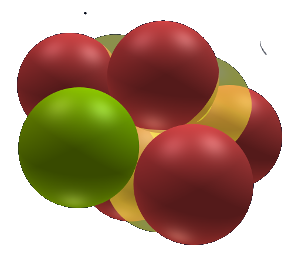Major postulations of the Structured Atom Model
- There are only two fundamental particles - the electron and proton (SAM does not explain the particles themselves).
- The proton and the electron are a duality or opposites yet do not annihilate each other.
- There is only one fundamental force: the electrostatic attraction force that is acting between the proton and the electron.
- The nucleus is following the "spherical densest packing" principle and shows specific groupings in the elements defined as nuclets.
- The atom must have a definitive organization which is responsible for all attributes of a particular element.
- The neutron is not a fundamental particle, but is redefined as a connection between a nuclear electron and its neighboring protons.
- A stable element has a stable nucleus, i.e. no movement, without cause, in the structure of the nucleus.
- A sphere (proton) must always be part of one of the 3 identified geometrical structures, namely the tetrahedron (4), the pentagonal bi-pyramid (7), or the icosahedron (12).
- The inner structure of the atom (nucleus) dictates the outer electron structure (orbitals).
- Protons all have the same properties and cannot occupy the same space.
- Electrons all have the same properties and cannot occupy the same space.
- Log in to post comments

Comments
Wal Thornhill and others…
Seeker Sun, 2020/01/12 - 15:17
Wal Thornhill and others suggest that the cumulative action of electron - proton pairs or dipoles, gives rise to what we perceive as gravity. These paired structures depart slightly from being perfect spheres but would still pack together as you suggest.
I think your model is fascinating. Keep going!